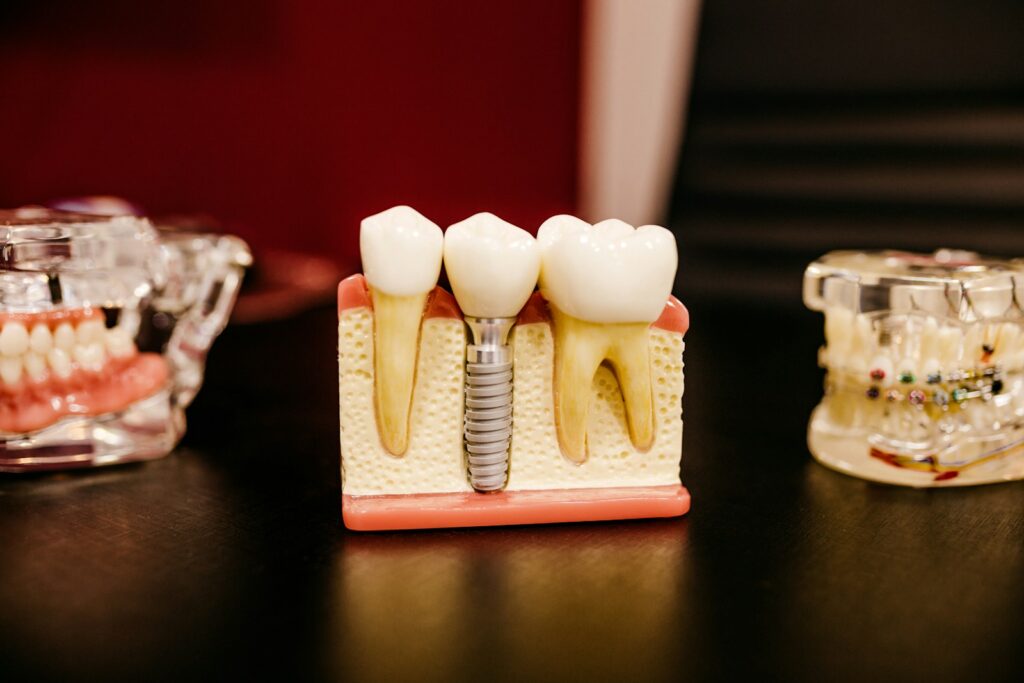What are Dental Implants?
Dental implants are artificial tooth roots made of biocompatible materials, usually titanium, that are surgically placed into the jawbone to support replacement teeth. They serve as a strong and stable foundation for dental prosthetics such as crowns, bridges, or dentures, mimicking the natural function and appearance of real teeth.

Why Choose Dental Implants?
Dental implants offer numerous advantages over traditional tooth replacement options such as bridges or dentures. They provide a permanent solution for missing teeth, restore proper chewing and speaking functions, prevent bone loss in the jaw, and look and feel like natural teeth. Additionally, dental implants can improve oral health by preserving adjacent teeth and supporting overall facial structure.
How are Dental Implants Placed?
The process of getting dental implants typically involves several stages. First, the implant is surgically placed into the jawbone beneath the gum line. Over time, the implant integrates with the surrounding bone through a process called osseointegration, providing a strong and stable foundation. Once the implant has fully fused with the bone, a connector piece called an abutment is attached to it, and a custom-made artificial tooth or teeth are securely mounted onto the abutment.


Benefits of Dental Implants:
- Improved appearance and self-confidence
- Restored chewing and speaking abilities
- Long-lasting and durable solution
- Prevention of bone loss in the jaw
- Preservation of adjacent teeth
- Convenience and comfort compared to removable dentures
- Enhanced overall oral health and facial structure
Patients speaks
About Dentist

